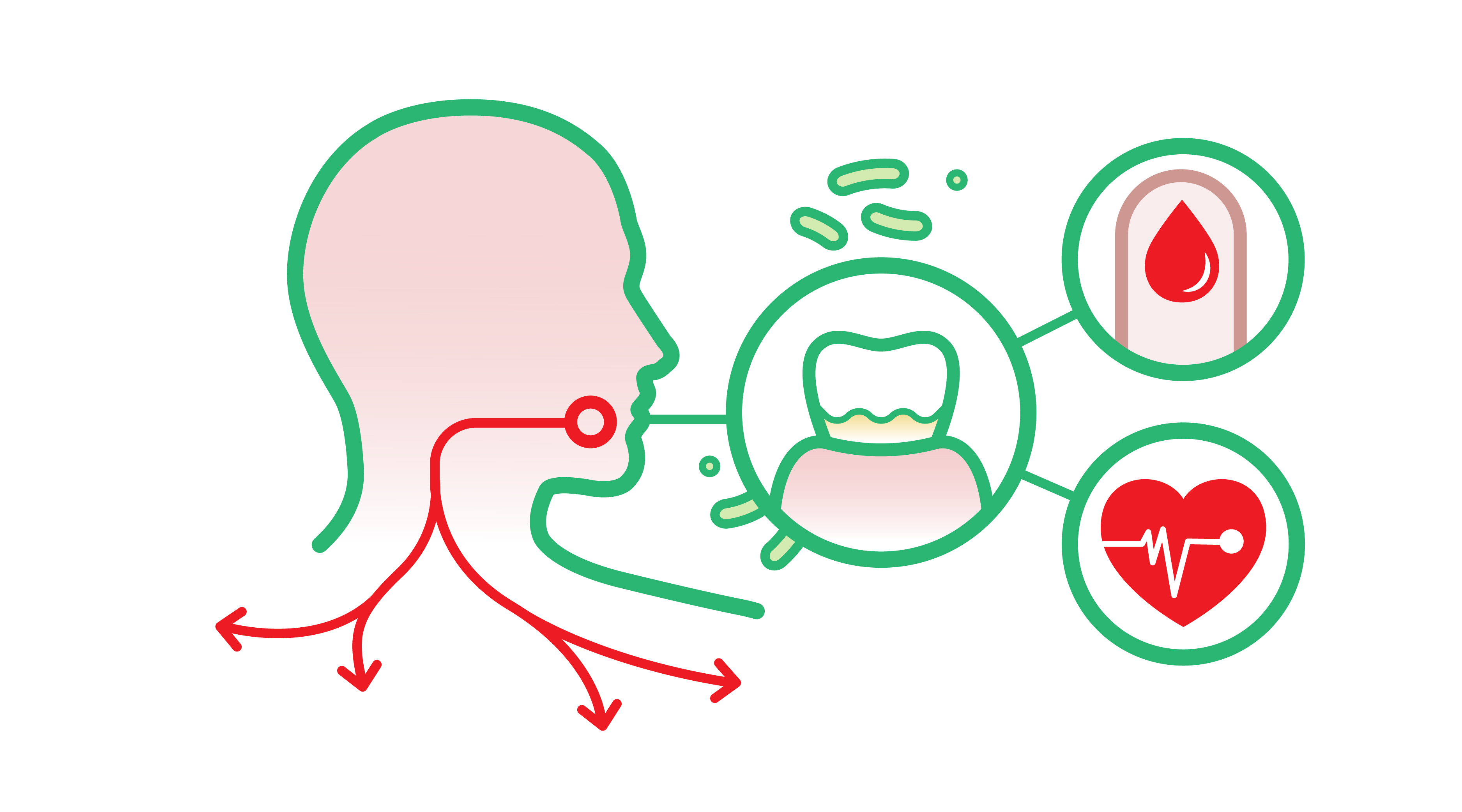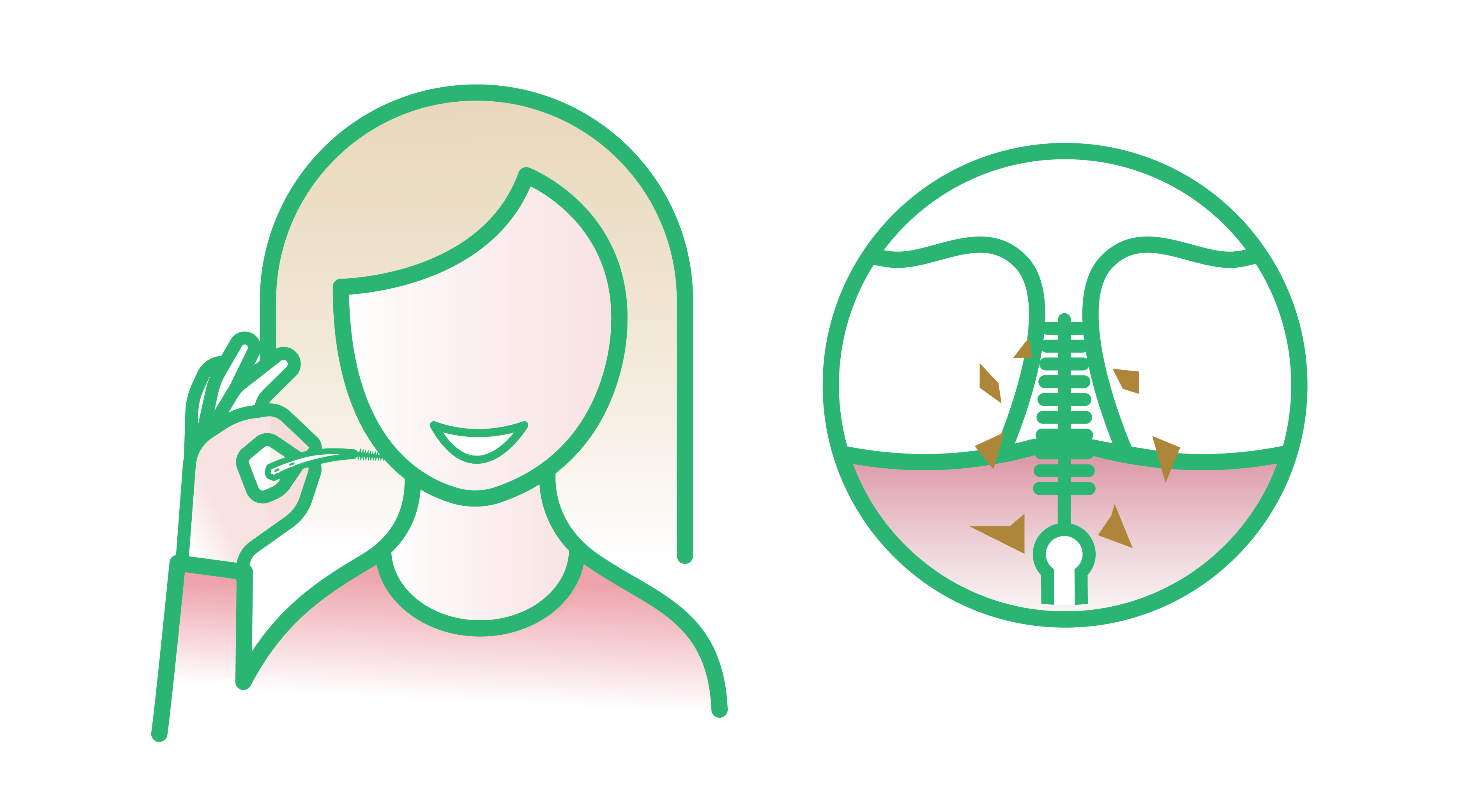
Holistic Health: The Mouth Is Part of the Body
“For the part can never be well unless the whole is well.” Those were the words of Plato 2,400 years ago. In the present, modern medicine has reinvested in holistic medicine, the idea that the entire body must be treated as an entity, rather than focusing on discrete parts.

Many people are concerned about individual body parts: they’re worried about their heart or their back or their stomach, and, of course, doctors specialize in different parts of the body. But problems with the digestive tract affect heart health, and muscle problems can lead to skeletal woes.
Each system in the body is interdependent on the others, and the mouth is no exception. Dentists have been embracing holistic medicine, gaining a better understanding of how oral health affects overall health. A strong example of this practice is the link between oral health and diabetes.

Not only must dentists work with other healthcare practitioners as part of a medical team focused on planning and executing a holistic healthcare plan for patients, but dentists also need to educate patients on this concept and explain how oral care can contribute to overall health.
Holistic Health and Dentistry: A New Era of Care
Patients need to understand that dental care is just one component of whole-body care. The link between periodontal disease and diabetes is clear, for example. However, not every patient is aware about the links between poor oral health and their overall health, or about the powerful preventive benefits of good oral care. There are more and more studies reinforcing the links between oral health and overall wellbeing. For example, recent research has shown a strong link between oral health and cardiovascular disease [1], dementia [2] and many other severe health conditions. Findings suggest good oral care as a simple yet powerful step in prevention, and the challenge is to translate these findings into daily practice to support your patients.
As the scientific community learns more about these relationships, dentists can share recent insights with patients to inform and motivate them. This strategy opens up new opportunities for encouraging better brushing, interdental cleaning and rinsing in patients. For example, a patient with poor compliance to oral hygiene instructions may be more motivated to floss when they learn the link between periodontitis and cardiovascular disease [3]. Framing it in a positive, encouraging way — it might not seem important, but adopting interdental cleaning as one of your many healthy habits could help to lower your risk for heart disease — helps patients understand the reality of their situation.
Ultimately, this strategy can help both dentists and patients. Dentists gain a new avenue for educating patients and promoting good oral care; patients get the preventive health tips they need to maintain total-body wellness.

Ways Oral Health Impacts Overall Health
Dentists generally know about the link between oral health and general health. An important driving factor for emerging research is the fundamental knowledge practitioners obtain by empirical observations during daily practice. Many patients are now also starting to understand this link, but they may not comprehend it fully, while others haven’t even considered this relationship.
One of the simplest ways for dentists to connect to patients and foster understanding of the link between oral health and general health is to provide simple, evidence-based examples of links between good oral health and positive outcomes and poor oral health and negative consequences. Some easy-to-share examples include:
- Oral bacteria causing periodontitis can enter the bloodstream, leading to heart disease [4]
- Periodontal inflammation and certain oral bacteria are linked to cognitive decline and dementia [5]
- The inflammation characteristic for rheumatoid arthritis [6] could exacerbate periodontal disease, and vice versa
- When inhaled, oral bacteria can cause respiratory conditions, including pneumonia [7]
- Gum disease can deteriorate under the influence of diabetes [8] and, in turn, can make diabetes [9] hard to control
- Periodontitis has been shown to be associated with adverse pregnancy outcomes [10]
- Certain cancers [11] occur more prevalently in people with periodontal disease.
If patients are already suffering from one of these conditions, the link between oral health and their condition can be a wake-up call. Others might see good oral care as an empowering way to reduce the risk of something worse from developing.
In addition to patient education, collaboration between dentists and other healthcare professionals is essential. Patients are accustomed to having a regular consult with a cardiologist, for example, but it’s just as important for dentists to communicate with other medical professionals as well. For example, evidence-based expert consensus reports strongly recommend an interdisciplinary approach when treating patients with diabetes [12] or cardiovascular disease [13]. Examples to implement this in the dental office include:
- Inquire with a physician to retrieve a detailed medical history, including information about the patient’s systemic disease (e.g., the level of metabolic control in a patient with diabetes, the presence of hypertension, or certain medication use).
- If a patient demonstrates certain risk factors for diabetes or cardiovascular disease, but this hasn’t been diagnosed yet, inform them about their increased risk, and refer them to a physician for appropriate diagnostic testing and follow-up care.
Likewise, physicians should integrate oral health into their routine by recommending regular periodontal examination at the dental office for patients with chronic diseases such as diabetes. A recently developed online screening tool for periodontal disease, available at www.perioscreening.com [14], offers them the opportunity to assess the risk for periodontal disease themselves, without having to inspect the oral cavity. This risk assessment could help them to motivate a patient to visit a dentist.

The Mouth as a Mirror for the Body
For a long time, healthcare professionals treated the mouth as a discrete entity, separate from the rest of the body. But now, the mouth is being “reintegrated” back into the whole. It is, of course, connected to the rest of the body and it should all be treated as one organism, true to the holistic approach.
In many ways, the mouth can be a mirror for the rest of the body. For example, there are indications [15] that the composition of saliva can change under the influence of systemic disease. In theory, that makes salivary biomarkers potentially useful for dentists to monitor or screen for those systemic diseases. For example, research [16] suggests a strong correlation between salivary and blood glucose levels, indicating that salivary glucose could be a non-invasive alternative to monitor glucose levels. In another publication [17], it is suggested that certain salivary biomarkers can be used as a non-invasive way to screen for systemic lupus erythematosus, Sjögren disease, Behçet disease, and more. Salivary biomarkers even show potential for detection of non-oral tumors [18].
This is why it’s so important for dentists to collaborate with other healthcare professionals [19]. Dentists should work with nurses, physicians, physician’s assistants, social workers, occupational therapists, physical therapists, speech/language pathologists and more. This collaboration should include interprofessional education and communication as well as teamwork.
If, for example, a patient is diagnosed with periodontal disease during a dental visit, and is also suffering from cardiovascular disease or diabetes, the dentist should consult the patient’s internist or specialist to explain the situation and develop a treatment plan together. Dentists don’t just clean teeth: they screen for serious diseases and work as part of a team to treat their patients’ entire bodies.
Research About Oral and Body Health
The research about the links between oral health and body health is ongoing. Each year, hundreds of new studies are published, and dentists can learn a great deal more about this topic by keeping paces with these papers. Last year alone (2020), many intriguing new studies, reports and clinical trials were published, looking at the effects of oral care on total health.
- An entire issue of Periodontology 2000 [20] was dedicated to periodontal disease and its relationship with systemic disease, providing all the latest insights
- A recent study published in the Journal of Dental Research asks, Does Nonsurgical Periodontal Treatment Improve Systemic Health? [21]
- A study published earlier in the year breaks down the body’s Inflammatory Networks Linking Oral Microbiome with Systemic Health and Disease [22]
- One paper looks at how Periodontal Inflammation Primes the Systemic Innate Immune Response [23] and the body’s reaction to it.
These examples are only a random, small cross-section of the ongoing investigative work into understanding the many ways periodontitis and other oral conditions affect the body and overall health.
Patient Education is a Cornerstone of Oral Care
Today’s health-minded population has access to more information than ever before, via the internet, but it can also be difficult for them to decipher what's valuable and trustworthy. Modern healthcare professionals play a critical role in providing clarity and helping filter out the noise. Dentists can answer the call by equipping patients with actionable, authoritative insights about the link between oral health and total health.
Use simple examples and illustrate the connection clearly. Tie oral care into a patient’s health-minded approach to total-body care. Cite the research and, if possible, share it with patients in a comprehensible way. And, most importantly, provide clear and concise recommendations for better oral care from a holistic standpoint. If patients and dentists are on the same page about oral healthcare and its role in total health and wellness, they’ll be better equipped to work together to ensure both.
For more information about holistic dentistry, systemic health insights or access to materials to help improve patient education, contact SUNSTAR GUM® today.


